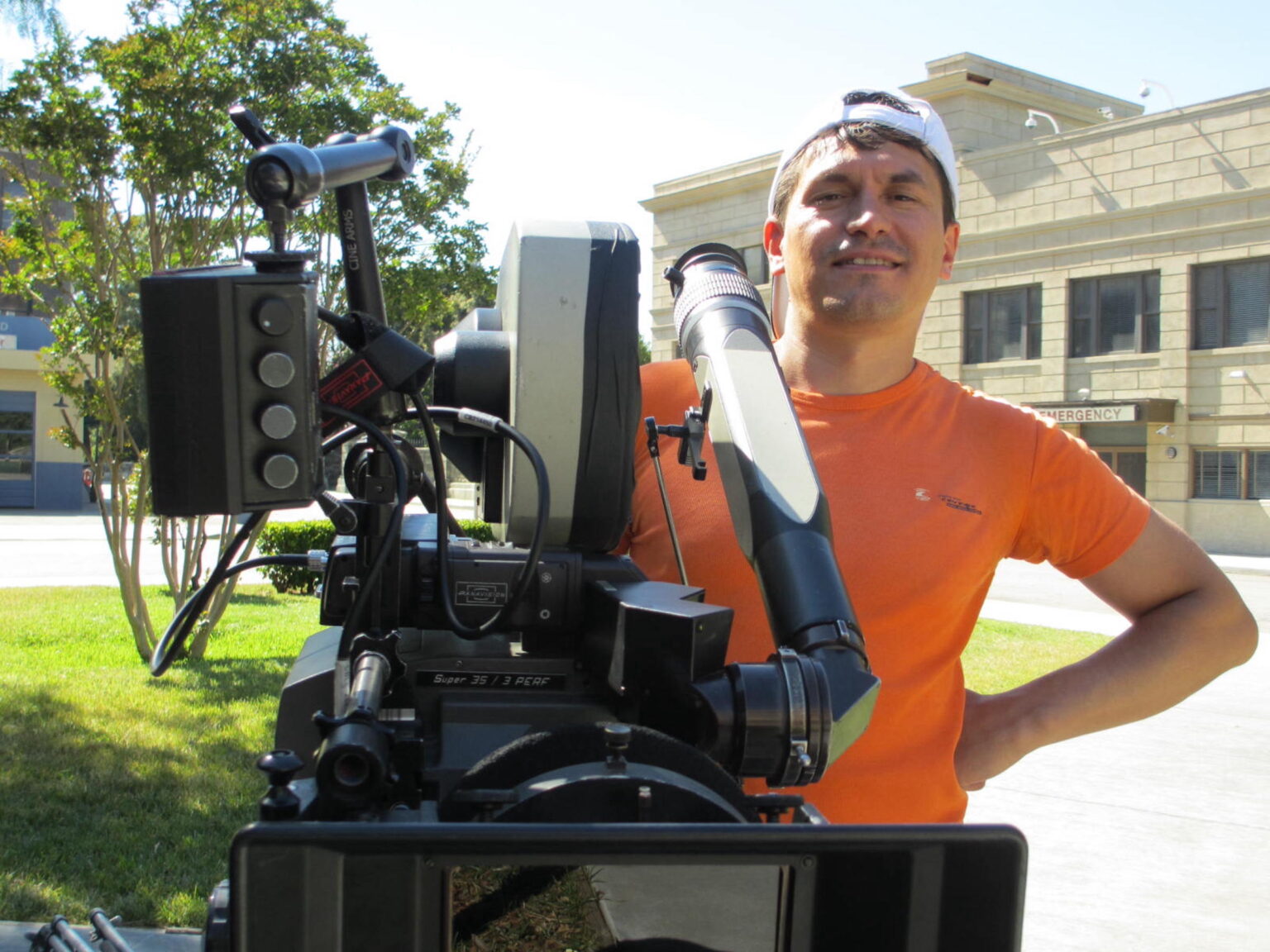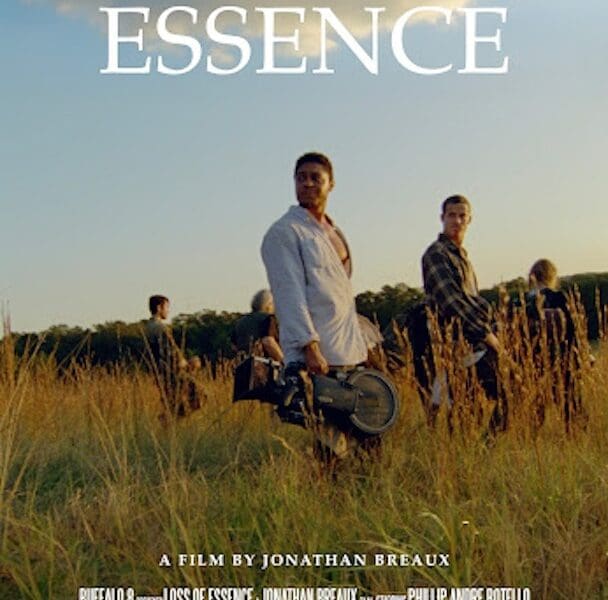
10 THINGS A FILMMAKER SHOULDN’T DO
By Leo Andronov
Director, screenwriter, producer, playwright, musician, copywriter, magazine publisher, production designer, art director, set-dresser, sound guy, actor, assistant director, storyboard artist, editor, cameraman – this is an incomplete list of skills and professions Leo (Leonid) Andronov had covered. He is a writer-director living in Los Angeles and in his second article he continues to share thoughts about being a filmmaker.
After exploring ten essential steps that we as filmmakers must take, let’s delve into the ones we should steer clear of at all costs. As a filmmaker, I’ve made my fair share of mistakes, so why not learn from my experiences instead of stepping on a rake of your own?

- DON’T LEAVE YOUR DAY JOB, EVEN IF YOU ALREADY STARTED YOUR DREAM PROJECT
Well, if you were hired by Disney, then yes, send a farewell letter to your past life and dive into it without a second thought. But in most cases, the first feature you shoot on the weekends and spending your own money undoubtedly will take more time and significantly more money than you are expecting.
Many people have made this mistake and left their jobs because they believed their life would miraculously change with this film. Please understand that if you finished your film, and even started your festival run, you’ll need to wait a long time before you sell it. I hate to say it, but don’t expect to earn any money on it. You will be incredibly lucky if you can at least earn what you put in to your precious baby. Remember that you need to support yourself and pay bills. Try to find a way to work your day job while you are creating your film.
- DON’T START WITHOUT THE SCRIPT
If you want to inevitably ruin your film, start shooting before you finish your script. So many people fall into this trap. I recommend not even starting with a first draft. You should start with the second at the very least.
As you know, fixing things in post is not a great idea, and with no script, you won’t even have the material to work on. What’s worse than a bad quality film? Correct, not to have it at all.
With unfinished script you won’t be able to put together a story. There is a certain level of stress you’ll have during production and I dare to say it is possible to find solutions to some problems on set. However, it won’t be possible to properly finish your story if you didn’t have it before. You need to have a beginning, middle, and end. You need a properly written screenplay, before the shoot.

- DON’T MAKE A FILM IN A TRENDING GENRE
I truly believe that if you step onto this path you must tell stories that are important to you personally, stories that are sincere, emotional, that shows some pain and depth.
What is trending today will probably not be so popular tomorrow. You have at least a year and half to finish your film. If you pursue what people enjoy today, you will easily find that when you have a finished film, noone it is interested in it anymore.
Focus on a good story that is personal to you. That is the key to success.
- DON’T BE DISCOURAGED IF EVERYTHING FALLS APART
There are no films made without headaches and troubles. These are challenges a director must go through. Don’t quit if something happens. It may be a cancelled location, or your main actor got sick, or the camera breaks during the important night shoot. Don’t give up! Look for solutions. I promise you will find solutions. If it’s not you, your team will help you find one. You should never give up. I am absolutely sure making a film is like fighting a war. Never surrender! You must win! There is just no other way!
- DON’T F*CK UP YOUR SOUND
It’s been said millions of times by thousands of film professionals all around the globe and I won’t hesitate to repeat it. Don’t f*ck up your sound on a set! You may have beautiful camera work, a stunning performance from your actors, but if you have bad sound, no one in the entire world will want to watch your wonderful film. Maybe your mom will out of the goodness of her heart, but I’m sure that’s not what you are looking for.
At the same time, if you have a poor picture, okay acting, but the sound is good (and the story is good too, of course) it would be a film people will accept, no problem. Your bad images will be considered as a style or your artistic approach. The acting may be enhaced with editing and music, and nobody will have a clue that something is amiss. You may be embarressed to see it yourself, but they won’t notice a thing.

- DON’T EVER TELL ANYONE THAT SOMETHING DOESN’T WORK IN YOUR FILM
As any creator, you see your product from the inside-out. You can see stitches that nobody sees, and if there is something wrong with your work, it may really hurt you. You, as a true artist, may even hate what you have created. I get it. I’m like you.
However, you have finally finished it and it is now a product. A product on a highly competitive market. We live in the era of satiety of the audience and constant informational tsunamis. People are so easily distracted nowadays. They struggle to keep focus. Remember, your influence may discourage viewers. Your film needs support, and you are one of the most important influencers. You have no right not to support your own film. Be excited about it. Talk about it. Tell stories about making this amazing flick. Let people’s eyes shine when they hear about it. That’s your job.
- DON’T THINK THAT IF YOU HAVE A GOOD FILM, IT’S ENOUGH TO SELL IT
This is a sad truth. To have a good film is not enough for a distributor to pick it up. The film should be sellable. What does ‘sellable’ mean? In most cases, a name actor should be in it, or it should be a pure genre film. Some people think festival awards can help. Yes, but even Sundance winners sometimes don’t go anywhere. So, you must be prepared when others aren’t excited about it. What do we do then?
We need to build our audience from the start. If you shoot your film about a specific topic, find enthusiasts or experts who care about it like you. They will be your first audience and they will spread the word about the film. Second, we need to engage the media during the production. You can create news about your film, at least on a local level, and if you are lucky, even more. You also can find support from famous individuals who may want to help you attract attention to the piece of art you have mastered. There are many ways of doing it. If you are excited about what you are doing, if you have energy, you can find ways into the hearts of your future viewers.
- DON’T GO TO FESTIVALS OR MARKETS WITHOUT HAVING A NEW PROJECT OR IDEA
True story: a guy from one very famous film school screened his final film with other students at the school theater. It was one of the best films that night. It happened that there was an agent from a top agency who was there too. He saw the film, he loved it, and then he spoke to the director, wanting to represent him. What did he ask next? Exactly: ‘Do you have a script?’ The director only had an idea. Great! The agent was willing to wait until the lucky guy finished his script.
Long story short. The script was never written. Will that director get a second chance? You tell me.
The bottom line is simple: a director must always be prepared.
- DO NOT REJECT POOR OFFERS FROM DISTRIBUTORS (CONSIDER THEM ANYWAY)
I made this mistake many years ago and I have regretted it every day since. When I was offered to sell my film, I read the contract from a modest distributor and found it poor. It wasn’t the best one, for sure. I wouldn’t make any money, I was required to do many things that I thought was their job, and, most importantly, I had no doubts I would get better offers, which never actually happened. So without talking to anyone, I rejected it right away and never spoke to the company after. I was too delusional, too stupid. Don’t make the same mistake!
Unless you are already a famous person with a huge following and great PR team, don’t expect disctibutors to form a line asking you to sell them your film. There are too many films on the market. Literally, thousands. Every single year! And you know what? After a year or two your film will be considered old, and it won’t be possible to sell it. Period.
You need to understand, the fact that selling your film is super important. It will immediately put you on the map. Forget about the money for now. You’ll make it later. I hope your film is successful and that people begin asking about your next project.
- DON’T SIT AFTER THE FILM IS DONE
I already mentioned that you do not have much time before your film ages. You have only –one-and-a-half to two years to sell it. For these two years, you are like a travelling salesman or a vendor in a Middle East bazar. You must praise your product and offer it to anyone and everyone.
Find a way to get it into as many festivals as you can. Attend them. Be at the screenings. Make connections! Give interviews, participate in podcasts, make your social media work for you. Time flies, and at the end of the day you need to start working on a new project, and I hope you fulfill it and embark on a new journey.
I hope I provided something useful to you today, and that it wasn’t too dry. We are the lucky and the crazy ones who believe art can change this insane world. Not many people are like us, and I am very happy we are as we are. Without artists, this world would be in much worse shape. So, good luck with your endeavors!








Laurie Gordon
/
An accurate on point informative article. Super!
November 15, 2023Never give up!